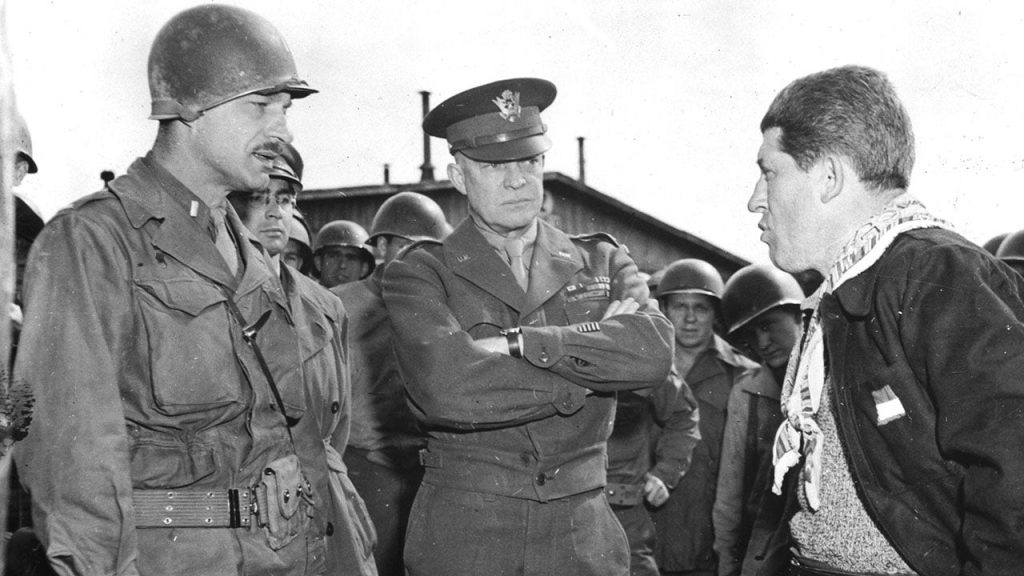Dwight D. Eisenhower’s career achievements are unprecedented, including serving as a two-term president, leading the Allied forces in Europe during World War II, overseeing the D-Day invasion, and initiating significant projects such as the interstate highway system and NASA. Eisenhower’s leadership extended to mentoring future president Ronald Reagan and serving as president of Columbia University for five years. He emphasized the importance of education for preparing students for citizenship in a free society.
During his time as president of Columbia University, Eisenhower prioritized general education for citizenship and emphasized the importance of remembering the horrors of the Holocaust. He visited the Ohrdruf concentration camp in Germany in 1945 and was deeply affected by the atrocities committed by the Nazis. Eisenhower recognized the need for proof of these horrors and invited the media and others to witness the scenes firsthand to prevent denial in the future. He foresaw a time when the atrocities of the Holocaust might be denied.
Decades later, anti-Israel agitation has taken over the Columbia campus, with extremist groups calling for the destruction of Israel. These groups have used tactics reminiscent of Hitler’s National Socialist Party, including shouting slogans like “by any means necessary” and “from the river to the sea,” which essentially call for the extermination of Jews. Columbia University has acknowledged the presence of antisemitism on its campus and has taken measures to address it, including limiting protests and disciplining students who breach these guidelines.
Despite these efforts, some students, including those of Jewish heritage, do not feel safe on the campus amidst rising antisemitism and calls for Israel’s destruction. The far-left group National Students for Justice in Palestine has spread the message of eliminating the Jewish state through tactics similar to those employed by the Nazis. Columbia’s deans have recognized the antisemitic nature of certain slogans and actions and have condemned them as deeply hurtful and unacceptable.
Eisenhower’s foresight in recognizing the potential denial of the Holocaust’s horrors is evident today as antisemitic sentiments and calls for Israel’s destruction persist on American university campuses, including Columbia. The far-left groups advocating for these views have drawn parallels to Hitler’s National Socialist Party and perpetuate harmful rhetoric that echoes the antisemitism of the 1930s. As America’s educational system grapples with the resurgence of these hateful ideologies, Eisenhower’s legacy serves as a reminder of the importance of educating future generations about the atrocities of the past to prevent their recurrence.


